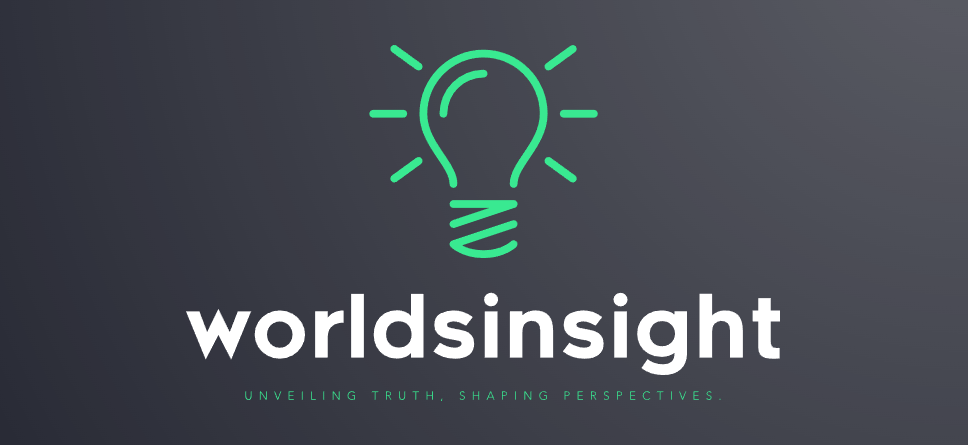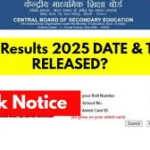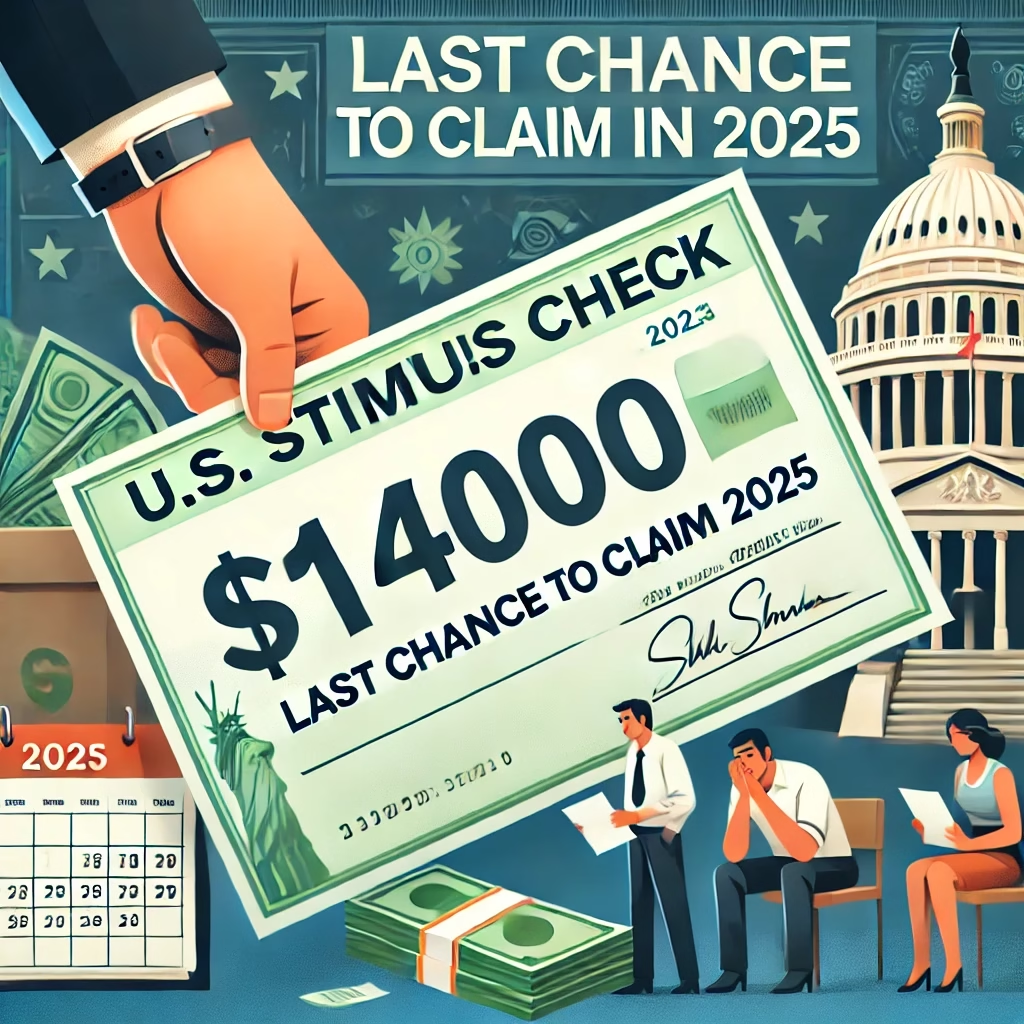As the April 15, 2025 deadline fast approaches, millions of Americans may still be eligible for a $1,400 stimulus payment they never received. This comprehensive guide covers everything you need to know about these payments, who qualifies, and the urgent steps needed to claim your money before it’s too late.
What Are the $1400 Stimulus Checks and Why Are They Still Available?
The $1400 stimulus checks represent the third and final round of direct payments issued to Americans during the COVID-19 pandemic under the American Rescue Plan Act of 2021. While most eligible recipients received their payments automatically in 2021, the Internal Revenue Service (IRS) has identified that approximately one million taxpayers never claimed this financial relief or received less than they were entitled to.
These unclaimed funds, totaling an estimated $2.4 billion, remain available to eligible individuals who act before the fast-approaching deadline. The IRS has been working to ensure that those who overlooked claiming the Recovery Rebate Credit (RRC) on their 2021 tax returns still have an opportunity to receive this financial assistance.
“Looking at our internal data, we realized that one million taxpayers overlooked claiming this complex credit when they were actually eligible,” said IRS Commissioner Danny Werfel in a December statement. “To minimize headaches and get this money to eligible taxpayers, we’re making these payments automatic, meaning these people will not be required to go through the extensive process of filing an amended return to receive it.”
Understanding the History of COVID-19 Stimulus Payments
To fully comprehend the current $1400 stimulus situation, it’s important to understand the context of all pandemic-era payments:
The Three Rounds of Stimulus Payments
The federal government issued three separate rounds of direct payments during the height of the COVID-19 pandemic:
- First Round (March 2020): Authorized under the CARES Act, provided up to $1,200 per eligible adult and $500 per qualifying child.
- Second Round (December 2020): Provided up to $600 per eligible adult and $600 per qualifying child.
- Third Round (March 2021): Implemented under the American Rescue Plan, offering up to $1,400 per eligible individual and $1,400 per qualifying dependent.
These three rounds totaled approximately $814 billion in direct payments to American households during a period of unprecedented economic upheaval. The payments were designed to provide immediate financial relief and stimulate economic activity during nationwide shutdowns and record unemployment.
Who Is Eligible for the $1400 Stimulus Check?
The eligibility requirements for the $1400 stimulus checks are specific and income-based. Understanding these criteria is crucial to determining if you qualify for this payment.
Income Thresholds for Eligibility
Eligibility is primarily determined by your adjusted gross income (AGI) as reported on your 2021 tax return:
- Individual filers: You qualify for the full $1,400 if your AGI was $75,000 or less. The payment gradually phases out and disappears completely at an AGI of $80,000.
- Married couples filing jointly: You qualify for the full $2,800 ($1,400 per person) if your combined AGI was $150,000 or less. The payment phases out completely at a combined income of $160,000.
- Head of household filers: You qualify for the full amount if your AGI was $112,500 or less, with the payment phasing out completely at $120,000.
Dependent Eligibility
A key feature of the third stimulus payment was its expanded eligibility for dependents:
- Unlike previous stimulus payments, dependents of ANY age qualified for the $1,400 payment, not just children under 17.
- This meant college students, elderly dependents, and adult dependents with disabilities were eligible for the first time.
- Each qualifying dependent added $1,400 to the household’s total payment.
Special Situations
Some individuals in special circumstances may still qualify:
- People who did not earn enough income to be required to file taxes in 2021
- Individuals who experienced significant income drops in 2021 compared to previous years
- Those who had life changes in 2021 (like having a baby or adding a dependent)
- People who did not have a Social Security number when initial payments were issued but received one later
How to Determine If You’re Owed a $1400 Stimulus Check
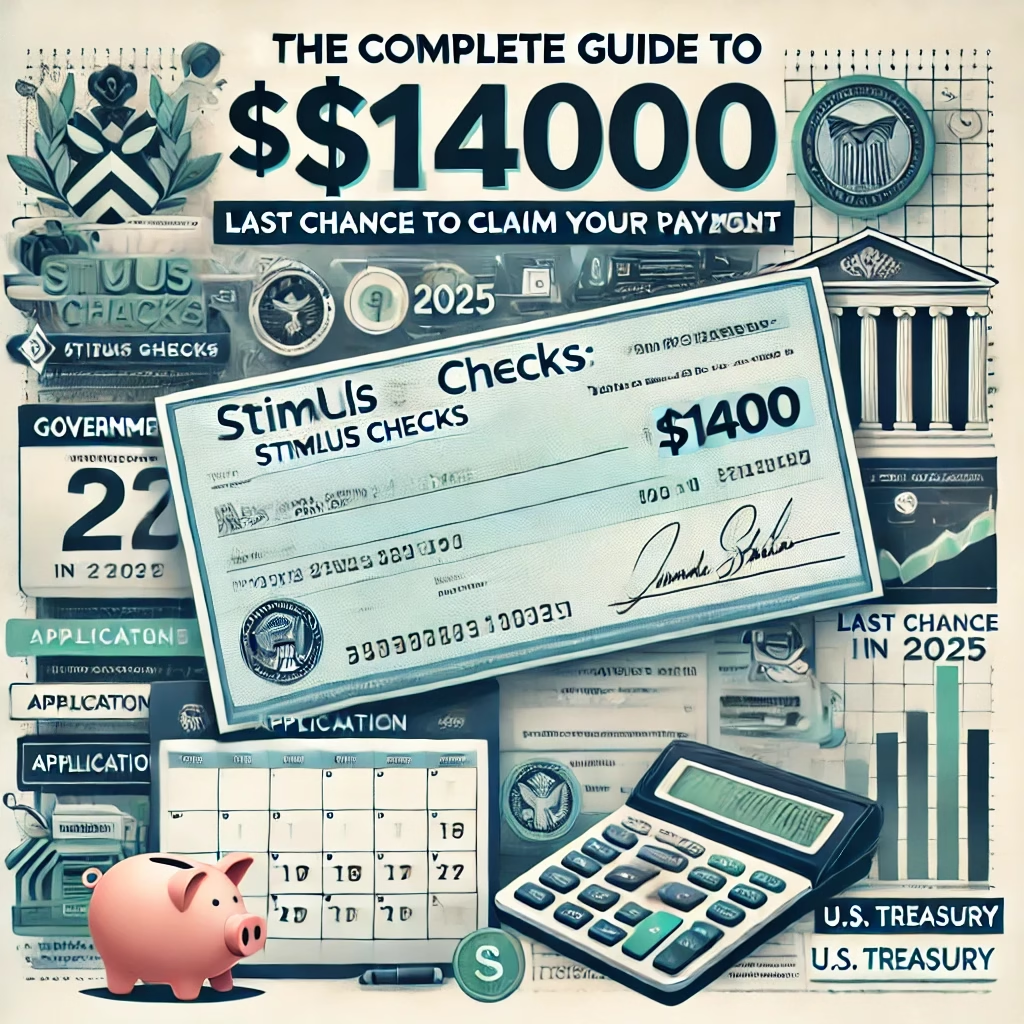
Many Americans may be unsure whether they received their full stimulus entitlement. Here are ways to verify your status:
Check Your IRS Records
The IRS provides several ways to check your stimulus payment status:
- IRS Online Account: Log into your IRS online account to view records of any stimulus payments issued to you.
- Get Transcript Tool: Request a tax transcript that shows if and when stimulus payments were issued to you.
- 2021 Tax Return: Review your filed 2021 tax return to see if you claimed the Recovery Rebate Credit.
Common Scenarios Where You Might Be Eligible
You might qualify for the unclaimed $1400 stimulus check if:
- You never received the third stimulus payment in 2021
- You received a partial payment but were entitled to more
- You had a new dependent in 2021 that wasn’t included in your payment calculation
- Your income decreased significantly in 2021, making you eligible when you weren’t before
- You didn’t file a 2021 tax return but were eligible for the payment
The Critical April 15, 2025 Deadline
The IRS has emphasized that there will be absolutely no extensions for claiming the $1400 stimulus payment. Under federal tax law, taxpayers generally have three years to claim a refund or credit, which means the deadline for claiming the 2021 Recovery Rebate Credit is April 15, 2025.
What Happens If You Miss the Deadline?
The consequences of missing the deadline are severe and permanent:
- Your unclaimed stimulus money will become the property of the U.S. Treasury
- There will be no possibility of claiming the funds through amended returns after the deadline
- No exceptions will be made, regardless of circumstances
Acting Now vs. Waiting Until the Deadline
While April 15, 2025, is the final deadline, there are significant advantages to filing as soon as possible:
- Avoid the rush of last-minute filings that could lead to processing delays
- Allow time to address any issues or errors that might arise with your tax return
- Receive your payment sooner rather than later
- Have time to seek professional help if needed for complex tax situations
How to Claim Your $1400 Stimulus Check
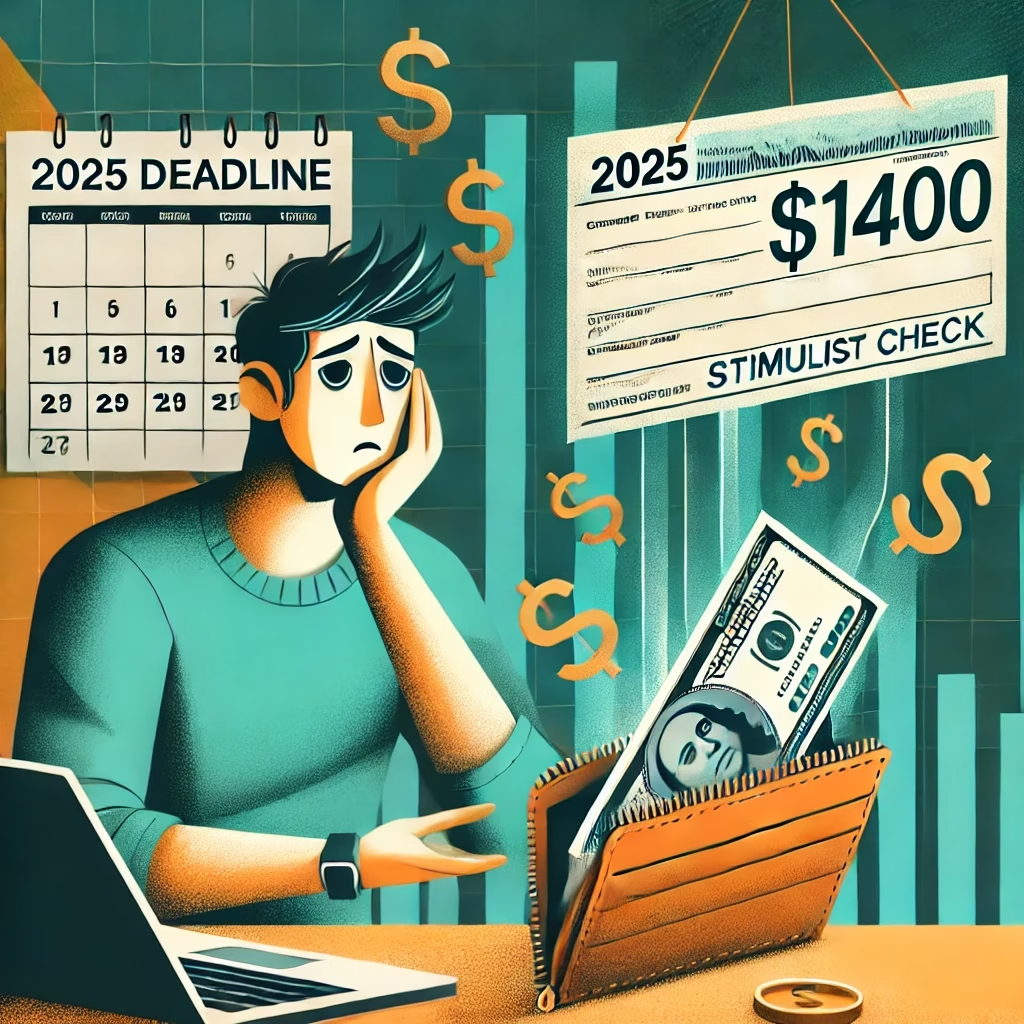
The process for claiming your stimulus payment depends on your specific situation.
For Those Who Filed a 2021 Tax Return But Didn’t Claim the Credit
If you already filed your 2021 tax return but either:
- Left the Recovery Rebate Credit field blank, or
- Incorrectly entered $0 when you were eligible
Good news! The IRS has begun automatically issuing payments to taxpayers in this situation. No action is required on your part. You should:
- Watch for a notification letter from the IRS explaining your payment
- Check your bank account for direct deposits if the IRS has your banking information
- Monitor your mail for paper checks if the IRS doesn’t have your banking details
For Those Who Haven’t Filed a 2021 Tax Return
If you haven’t yet filed a 2021 tax return and believe you’re eligible for the stimulus payment, you must:
- File a 2021 Federal Tax Return: Even if you had little or no income and weren’t required to file, you must submit a 2021 return to claim the Recovery Rebate Credit.
- Complete the Recovery Rebate Credit Worksheet: This helps determine the amount you’re eligible to receive.
- Submit Your Return Before April 15, 2025: File electronically if possible, as this speeds up processing time.
- Provide Direct Deposit Information: This is the fastest way to receive your payment.
Filing Options for Those With Low or No Income
Even if you had minimal income in 2021, you still need to file a tax return to claim your stimulus payment. Free filing options include:
- IRS Free File: Available for those with incomes below certain thresholds
- Volunteer Income Tax Assistance (VITA): Free tax preparation for qualifying individuals
- Tax Counseling for the Elderly (TCE): Free tax help for those 60 and older
Common Questions About the $1400 Stimulus Checks
Here are answers to frequently asked questions about the unclaimed stimulus payments:
Will Filing for the Stimulus Check Affect My Other Benefits?
Generally, stimulus payments are not counted as income for determining eligibility for federal benefits programs such as:
- Supplemental Nutrition Assistance Program (SNAP)
- Medicaid
- Supplemental Security Income (SSI)
- Section 8 housing assistance
However, it’s always best to check with your specific benefit programs if you have concerns.
What If My Income or Family Situation Changed Since 2021?
The eligibility for the $1400 stimulus check is based on your 2021 situation. Even if your income or family composition has changed since then, what matters is your status during the 2021 tax year.
Will I Owe Taxes on My Stimulus Payment?
No, stimulus payments are not taxable income. You will not need to report the $1400 payment as income on future tax returns.
What If I’m Not a U.S. Citizen?
You may still qualify if you’re a resident alien with a valid Social Security number and meet the income requirements. However, nonresident aliens generally do not qualify.
Tips for Ensuring a Successful Claim
Follow these strategies to maximize your chances of successfully receiving your stimulus payment:
Gather Necessary Documentation
Before filing, collect:
- Social Security numbers for yourself and all dependents
- Birth dates for all household members
- Banking information for direct deposit
- Records of any partial stimulus payments already received
File Electronically
E-filing offers numerous advantages:
- Faster processing compared to paper returns
- Built-in error checking to reduce mistakes
- Confirmation of receipt by the IRS
- Quicker refunds, typically within 21 days for error-free returns
Double-Check Your Return for Accuracy
Common errors that can delay your payment include:
- Incorrect Social Security numbers
- Missing signatures
- Math errors
- Incorrect bank account information for direct deposit
- Inconsistent information about dependents
Consider Professional Assistance
If your tax situation is complex, consider seeking help from:
- A certified tax professional
- IRS Taxpayer Assistance Centers
- Low-income taxpayer clinics
The Broader Economic Impact of Stimulus Payments
The $1400 stimulus checks were part of a larger economic recovery strategy implemented during the COVID-19 pandemic.
Economic Effects of the Stimulus Program
The stimulus payments provided critical support during an unprecedented economic crisis:
- Helped millions of households meet basic needs during widespread unemployment
- Prevented more severe economic contraction during lockdowns
- Supported consumer spending when businesses were struggling
- Reduced financial hardship, food insecurity, and housing instability
How Unclaimed Payments Affect the Economy
The approximately $2.4 billion in unclaimed stimulus funds represents:
- Lost potential economic activity in local communities
- Missed opportunity for individuals to reduce debt or build savings
- Unintended consequence of complex tax rules and filing requirements
Planning for Your Stimulus Payment
If you’re eligible to receive a $1400 stimulus payment, consider how to best use these funds.
Strategic Uses for Your Stimulus Check
Depending on your financial situation, consider these options:
- Pay down high-interest debt: Reducing credit card balances or other high-interest loans can provide long-term financial benefits.
- Build an emergency fund: If you don’t have savings to cover 3-6 months of expenses, consider boosting your emergency fund.
- Invest in necessities: Address delayed medical care, home repairs, or other essential needs.
- Education or skills development: Invest in training that could improve your earning potential.
- Retirement savings: Consider adding to your IRA or other retirement accounts.
Avoiding Stimulus Payment Scams
Unfortunately, stimulus programs often attract scammers. Protect yourself by knowing:
- The IRS will never call, text, email, or contact you via social media requesting personal or financial information related to stimulus payments
- No legitimate government agency will ask you to pay a fee to receive your stimulus check
- Official correspondence about stimulus payments comes by mail from the IRS
- The IRS already has your information and doesn’t need you to “verify” it through unsolicited communications
Conclusion: Act Now to Secure Your $1400 Stimulus Check
The $1400 stimulus payment represents significant financial assistance that could help with bills, debt reduction, or building savings. With the April 15, 2025 deadline rapidly approaching, eligible individuals must act promptly to claim these funds before they’re permanently forfeited to the U.S. Treasury.
The process is straightforward for most people: either file your 2021 tax return if you haven’t already done so, or simply wait for automatic payment if you filed but didn’t claim the credit. The IRS has streamlined the process to ensure eligible Americans receive this financial support with minimal hassle.
Don’t leave money on the table that you’re legally entitled to receive. Check your eligibility, gather your documentation, and take the necessary steps to claim your $1400 stimulus check today.
Read more at worldsinsight.
